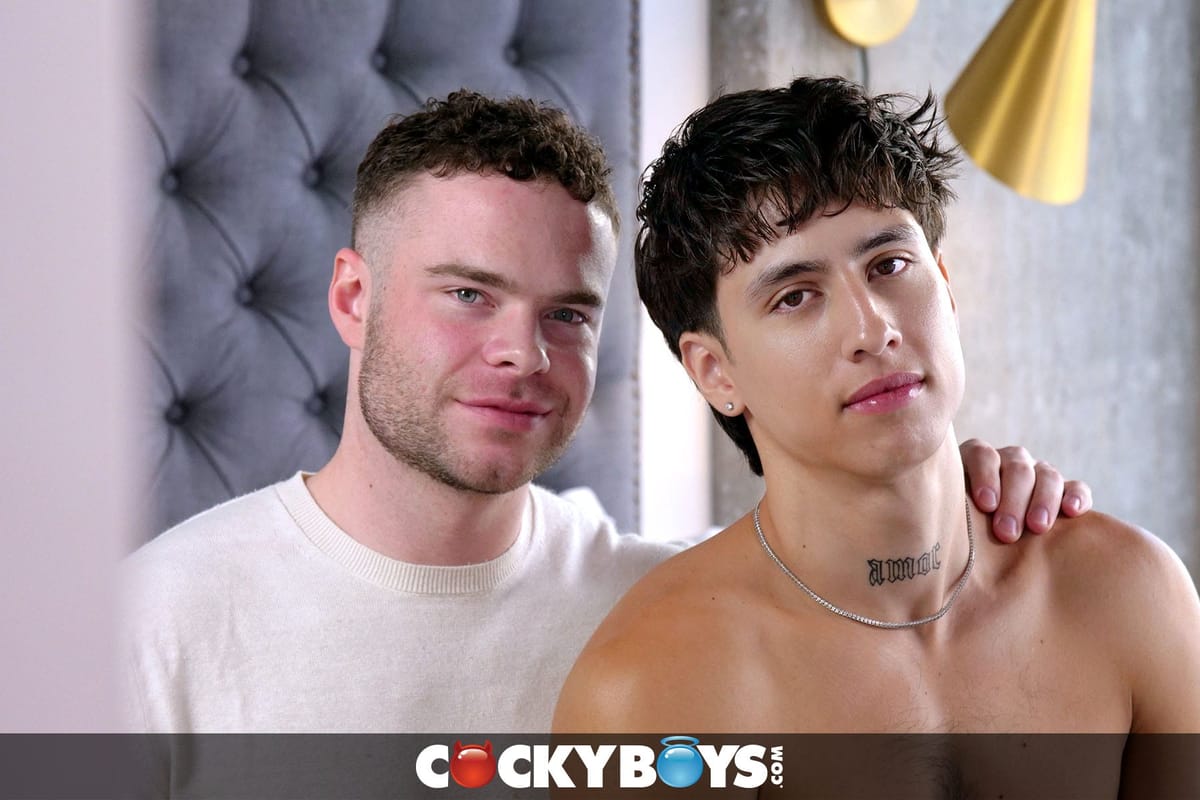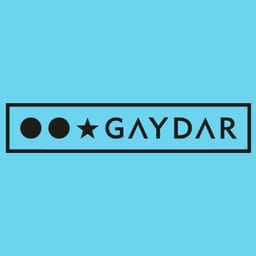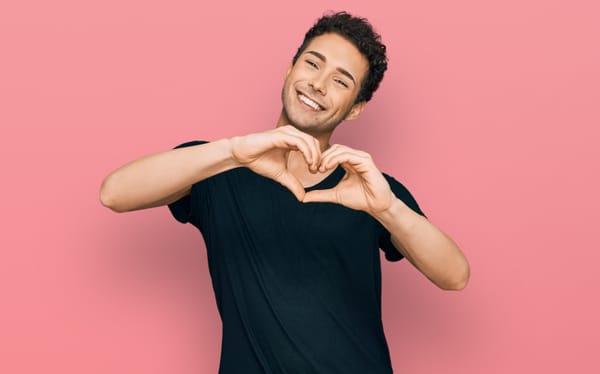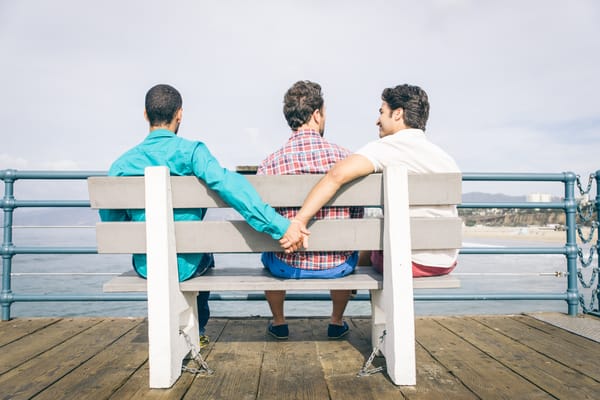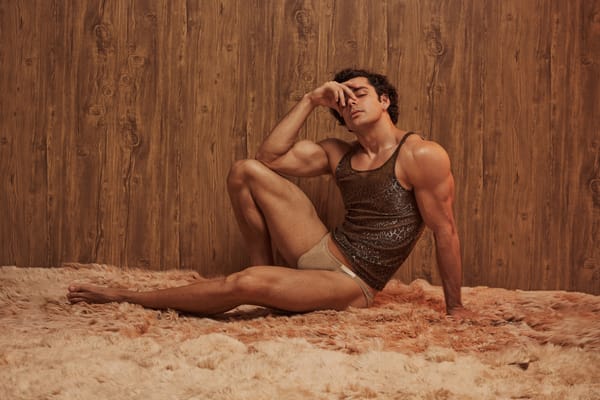Culture Watch: The Last Incel
Taking a satirical look at the online world of radicalised and isolated men.
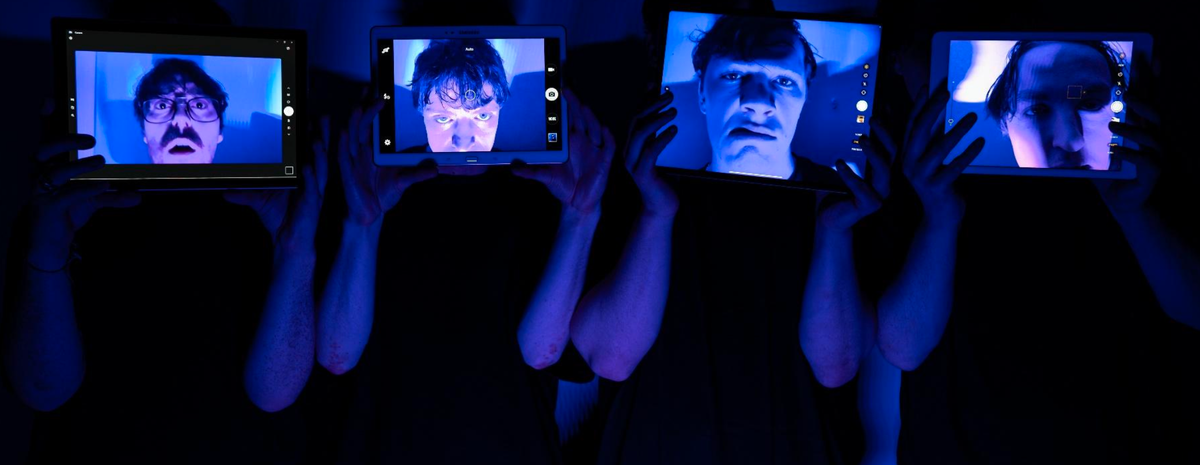
Written and directed by Jamie Sykes, The Last Incel takes a satirical look at the online world of radicalised and isolated men.
The narrative is centred around the life of a young man, known online as “Cuckboy”, and his fellow incels “Ghost”, “Crusher” and “Einstain”. Following a typical day in the lives of this chronically online community of toxic men, the audience observe the ideologies of the group being challenged after one of the members sleeps with a woman. The woman in question is a journalist called Margaret, a voice of reason who must interrogate this online world and finally confront her own history with toxic men.
Blending humour and dance with empathy and accountability, the play promises to be a uniquely Irish take on a universal issue.
"I felt the incel ideology was ripe for satire..." explains Jamie Sykes. "There’s something inherently funny and self-defeating about not being able to have sex and then, as a solution, adopting a world view that guarantees other people won’t want to have sex with you. In satirising the ideology these men hold we hope to tell a story that is funny, entertaining and enlightening, while allowing audiences to engage with this digital world in a medium that is human and cathartic. We hope to create a space that allows some empathy for the humans existing underneath these toxic ideas and foster some dialogue on how best to engage with them as a social phenomenon."
Niall Keane is one of the performers appearing in this production. We caught up with Niall for a behind-the-scenes look at the show.
This is a satirical take on incel ideology - is humour the best way to tackle something like this?
Obviously I’m biased and would say yes, but it’s a fun little theatrical law of the universe that you can satirise anything.
With most news stories, documentaries and now shows like Adolescence on Netflix taking Inceldom incredibly seriously, there is a stark contrast between the spectre of violence that made the moniker famous and the bizarre hateful poetry of posts that used to fill forums like the infamous r/incel on Reddit - banned back in 2017.
We have to navigate the idea of ‘Poes Law’ when satirising something with extreme language by giving the incels goofy dances and watershed moments of vulnerability.
Outside of often being xenophobic the lexicon of language they used was inherently funny, Wizards were incels above 30 on a growing chart or “power”. They self-described by adding the suffix ‘cel’ to whatever attribute apparently made them undesirable “headcel”, “kneckcel”, “heigthcell”. Language often came from video games and cartoons.
The end-product was a fairly anonymous and extremely online echo chamber between men obsessing over women and other more ‘attractive’ men with little real-life experience informing it.
The biggest producer of incels was the wave of pick-up artist culture driven by infamous people like Roosh V with books like ‘The Game’ by Neil Strauss exploring it.
We had men who lacked a certain amount of social skills and etiquette trying to buy a cheat-code to sex and romance and being nihilistically “blackpilled” by the experience.
So, despite the serious incel attacks that have occurred, the culture that radicalised them mostly consists of men self-victimised by their own imaginations. A situation that is not being addressed in more serious depictions.
With Andrew Tate selling “entrepreneur” courses on how to recruit women into sex-cam farms, the next wave of incels is probably already forming.
Is incel ideology something that you’ve ever personally encountered?
I haven't, romantically, but women I know have encountered men regurgitating incel talking points - men that they've gone on dates with.
In the online dating world, many men would have more success with meeting women in real life but are instead internalising the failure to meet women online first.
Back in the ancient days of the Facebook era I was in a group called “Shit Incels Say” that farmed screenshots from various incel forums - it was simultaneously hate-watching and fascinating. Incels would make serious calls for government-sanctioned girlfriends and wives alongside disturbing body horror-esque control fantasies.
The primary reaction it elicited in me was that the position of incel didn’t garner pity - it was rife to make fun of. However, it became obvious that most of the people making the posts were insecure, bullied and more comfortable online then in their own skin. Self-hatred was the primary entry point to the culture and hatred of women and the mythologising of sex the binding meta-narrative that held it together and kept people coming back.
At the time, incels were included in by the newly emerging manosphere and alt-right communities that were developing. That's still the case today. However, in many of these communities the product being sold is supremacy and literal supplements - incel culture will internalise the lack of success in these fields.
I’ve encountered people with incel adjacent ideas such as “women aren’t funny” - these are often guys who have no issue with dating and sex. Gender essentialism and misogyny aren’t incel-specific phenomena. Neither are the often-racist elements found in the community. For every trad-husband subscribed to a podcast who lives with his trad-wife, there is an incel listening to the same podcast.
Is there any intersection between queerness and incel ideology?
I don’t know if this is still the case but there was a nebulous belief within incel communities that queer people didn’t exist. Gay men were desperate enough to have sex that they ate the forbidden fruit. Trans women were similarly desperate enough that they transitioned and - as with most cases of xenophobia - trans men and lesbians rarely got a look in as it required to much mental gymnastics to dismiss.
It's deeply heteronormative and a radical call for a return to tradition without any of the religion or joy in nationalism to back it up - a stagnant call to gender essentialism.
This was, I feel, reflective of the age and background of many of the posters in incel forums. They didn’t seem to know any queer people and thus it was merely a concept to them. Many of them were likely teenagers and possibly met queer people later.
The great irony is that a queer woman coined the term incel in her blog Alana's Involuntary Celibacy Project to talk about her sex life online. The departure from the term being casual and descriptive to an entire identity has a Frankenstein quality to it.
Often the incel has more in common with other stereotypes, such as the Japanese hikikomori - a socially withdrawn chronically housebound person - or the depressive than the terrorist.
My favourite video essay about incels is by the YouTuber ContraPoints simply titled ‘Incels’. She compares the rhetoric of incel forums to the trans forums on 4chan and diagnoses the incels with body dysmorphia. A diagnosis with a popular focus on trans bodies as opposed to cis men that is ironic and revealing. Incels indeed fantasise about facial masculinisation surgery and hot men.
In a world were body positivity and feel-good messaging often comes from skin care campaigns selling you creams, the voice that you are ugly and that it's hopeless can feel more truthful.
Gender studies or queer theory is possibly the key that could set the incels free but they deny that it exists.
Is pornography the problem?
I don’t subscribe to the idea of porn being inherently dangerous. As a product itself, not in terms of the porn industry which is probably more exploitative to its performers than ever before.
I grew up in an era where porn was still strictly on the computer and in magazines - that has obviously changed.
I do think the incel is characterised by being in the digital era and thus porn is a part of their identity. Without it, the exact problem might not exist.
Within the discourse on porn you have the obvious ramifications it brings to men who are having sex, trying to reproduce what they've seen and their view on women. But with incels, these ramifications are removed from actual practice.
Porn is the obvious band-aid to involuntary celibacy - possibly the opium that prevents them from taking the necessary action to seduce someone.
The high standards of physical perfection incels seem to demand of women they feel ignored by are a testament to their pornographic view of women.
Many people raise the question - wouldn't a man who is so obsessed with sex simply hire the services of a sex-worker? The answer is that incels despise sex-workers and resent women for the attention they ‘easily’ get compared to them.
Their odd pride in not purchasing sex coupled with these ridiculous standards reveals the truth. Incels - be they porn addicts or not - don’t actually expect to lose their virginity.
Who knows if the monastery making a comeback would be a good thing but within the crisis of masculinity that seems to characterise incels, removing porn would not remove the identity itself but sex education on the subject probably helps.
What do you hope that people feel when they come to see the play?
Our primary aim is obviously to make people laugh. The tone shifts radically throughout but that aim is the constant.
Between the various dance numbers to a full pop soundtrack there is an emotional roller-coaster that balances out the more extreme language characterisations.
We've often observed people wondering what parts of the show they're supposed to or are allowed to laugh at. We've workshopped it to try to warm the audience up appropriately but it’s a little journey every time which is interesting.
It's natural regarding any serious subject matter that people are waiting to see where you’re going to bring them before they relax. Many people have little to no idea what an incel is and we’re happy to teach them.
We often have people asking if it’s based on specific incidents but Jamie’s inspiration for the show was a sketch about a group of incels that functioned as a support group, with having sex treated like a serious relapse. However, when he did research, it expanded - with the development of the characters, more depth was a natural requirement.
The play definitely falls within the category of story that explores the competition between men and women - ironically, that's also the premise for various romcoms in the 2000s if only with a darker subject matter. It focuses on the absurdity of sex as opposed to violence without diluting the incels as innocent or naive.
The story always reminded me of what if Snow White had come across the seven dwarves doing their own weird little version of Fight Club.
I was so excited starting out just to play a little villain and now find myself looking for people crying during a specific scene - I feel that the journey that the show has made leaves it needing to be seen to be understood.
Our only real hope is that the audience laugh at every little joke we eek out in the rehearsals, and that they have as much fun as we’re having. If not, at least Jamies’s softboi soundtrack is banging.
The Last Incel will run at the Pleasance theatre in London, 14-31 May
The NSFW edition
If you want to admire some man-on-man action, our NSFW edition gives you every inch.
Sign in and check out our NSFW content - it's free!
